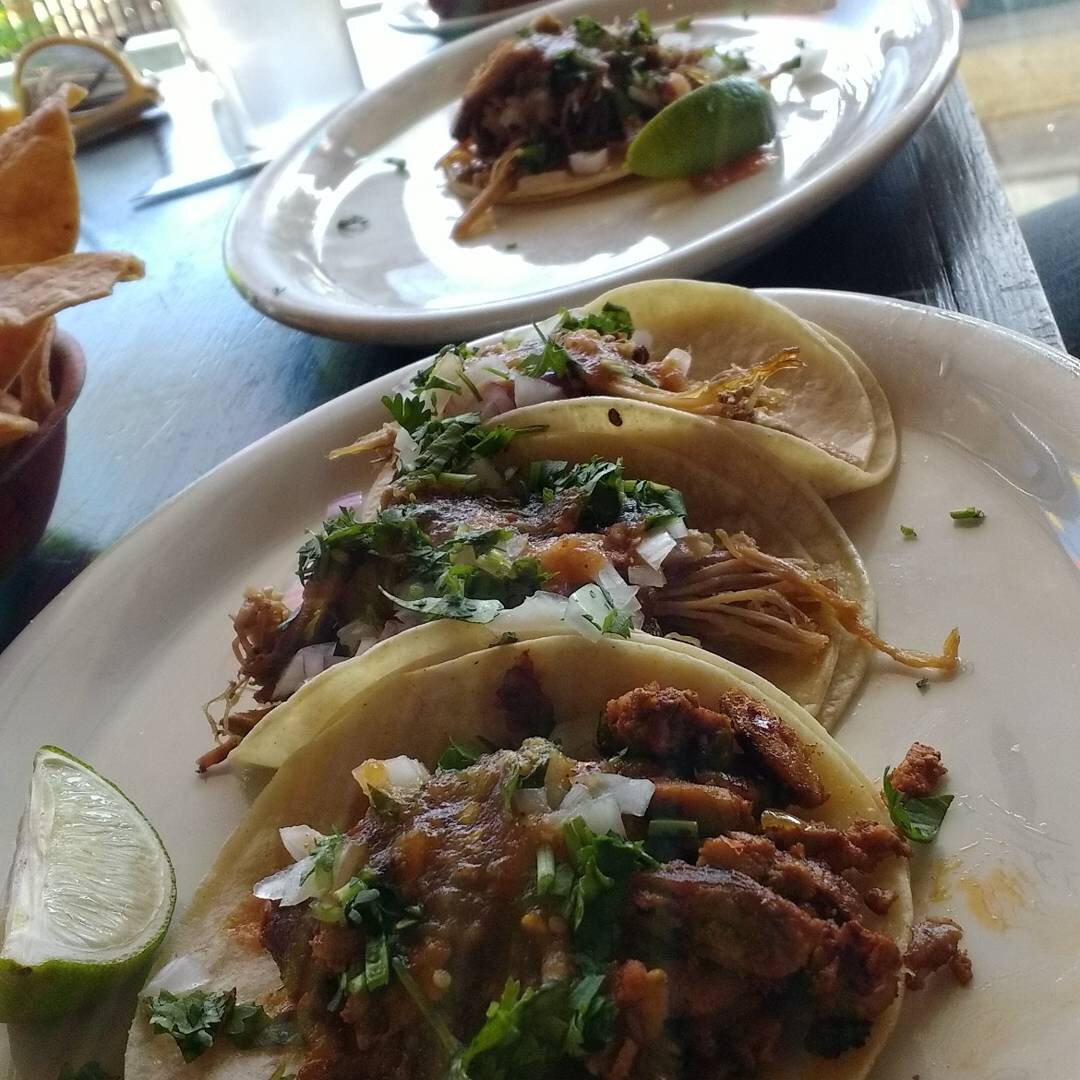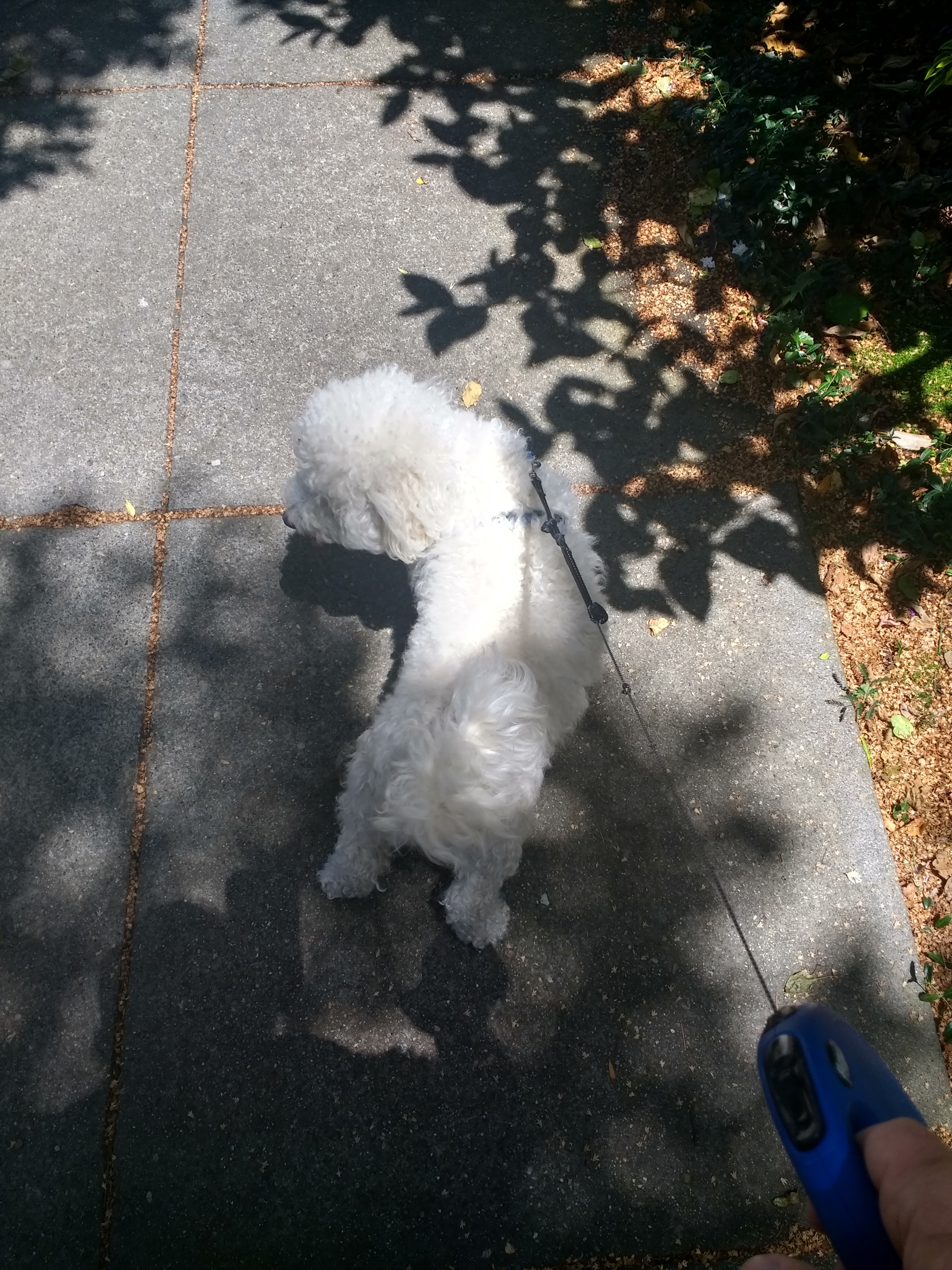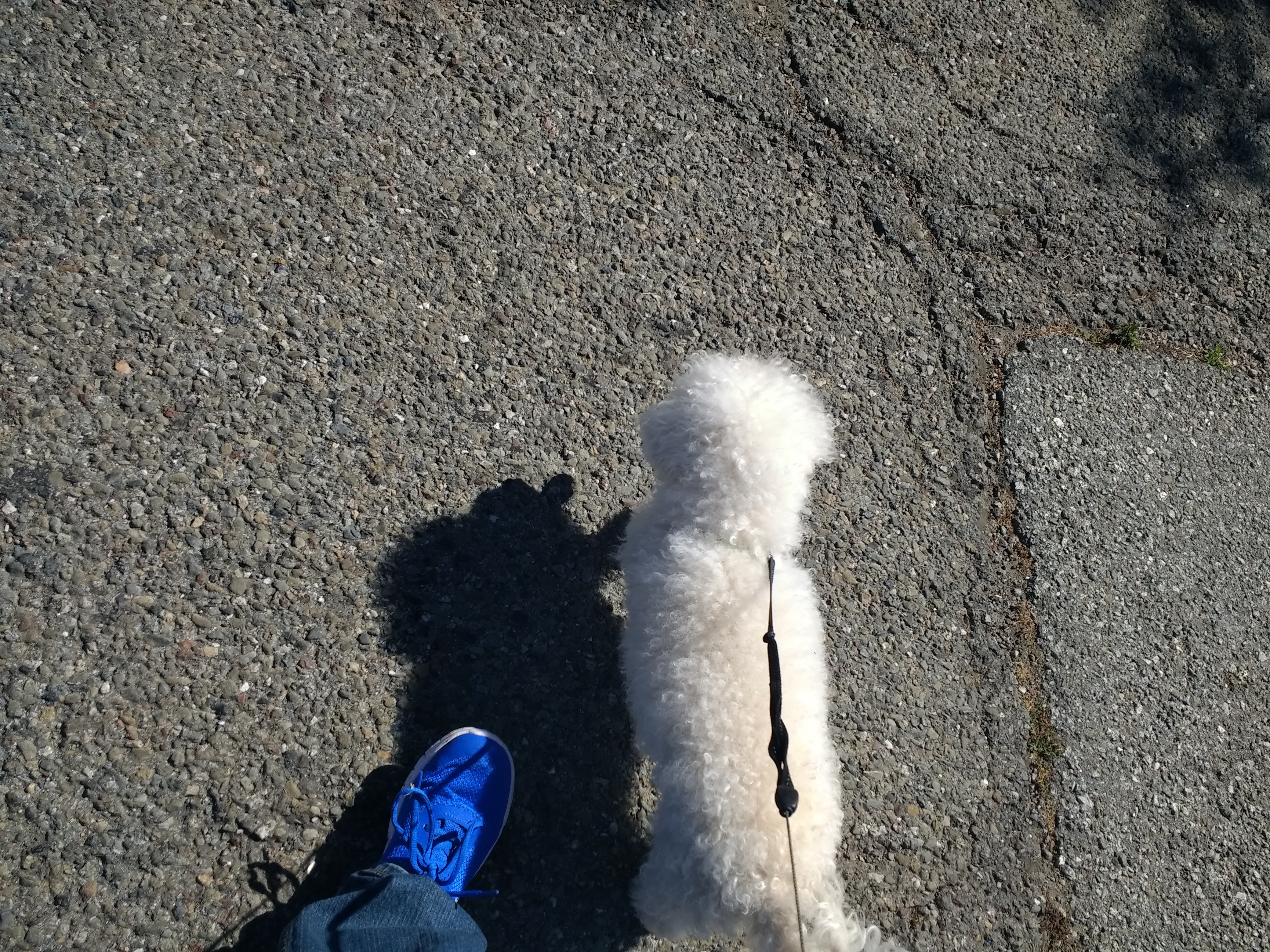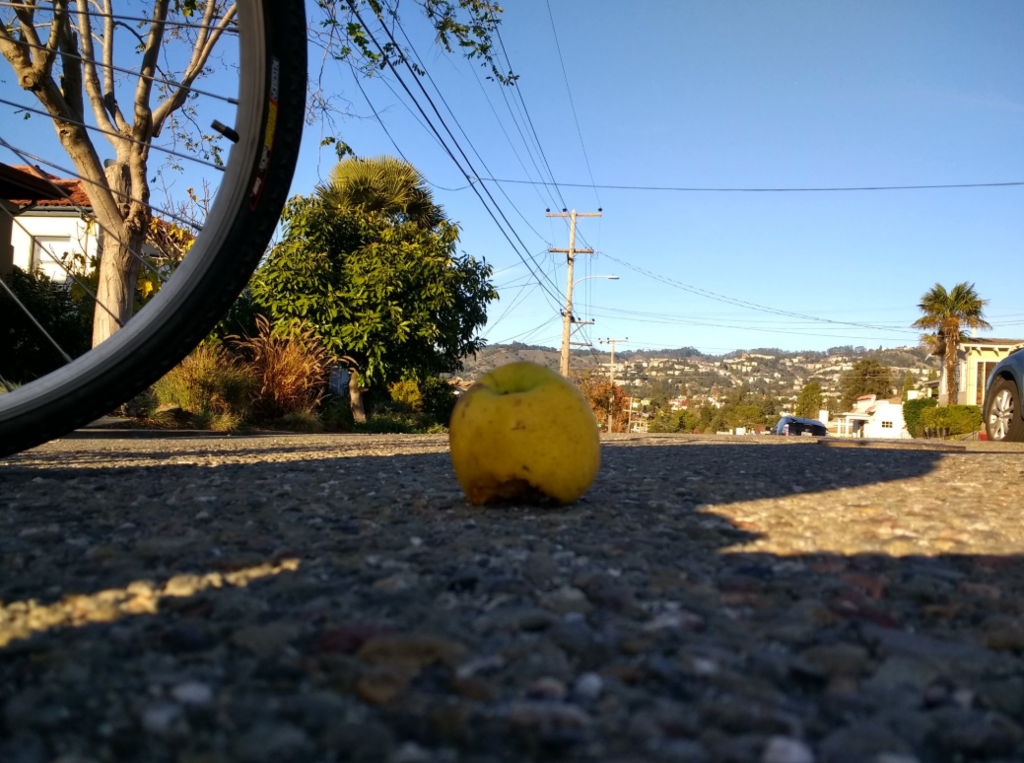December 11, 2017
Oakland, CA
I found an apple on the street, the street I live on. I was biking past, on my way home, and there it was. A yellow apple, sitting there on the street. An apple should not be on the street, nor could I see how it had gotten there. It stopped me; I regarded it for a moment, looking back over my shoulder. Eventually, I had to take a closer look, so I did, lazily circling back and coasting past it. It was a yellow apple.
(Sometime lemons fall off the lemon trees on my street—this being California—and sometimes the friendly people who own these lemon trees put a little box on the ground saying “Free!” which indicates that you can take the lemons, if you want. People don’t usually take the lemons, as far as I can tell. But this apple, though it was yellow, was not a lemon, nor was it in a nice friendly box indicating that you could take it if you wanted to.)
If a car drove by and hit the apple, it would crush the apple, and that scenario was sort of on my mind; I could see it getting hit, crunching and skidding down the street, wet and soon to turn brown. At the moment, it was a nice-looking apple. I looked left and right; no cars, so far. But eventually a car would hit that apple. And even if it managed to avoid being run over, this apple—this nice-looking apple—was going to sit there and rot. No one was going to eat it.
I should emphasize that I didn’t want to eat the apple. I’ve picked apples before, in an orchard in Marin county, where the idea is that if you pay them money, you can pick as many apples as you can pick. This apple, however, was different: You eat apples that you’ve picked from a tree, or from a grocery stand. This apple was on the street, and you do not eat an apple on the street.
I parked my bike, and with my foot, I gently nudged the apple so that it rolled down to the gutter, where it would be safe from cars.
I’ve started riding my bike again, out of necessity; with Lili and the car away for the week, it’s the only way to get around without spending the entire day on my feet. My neighborhood is walkable, but walking is slow and having a car—and using it—accustoms you to a certain range of mobility: when the taco truck at the corner of Broadway and 49th wasn’t there, the other day, I ended up walking to Cassave for my fix, and so, I ended up spending half the afternoon walking to San Pablo Avenue and back.
 Aaron Bady
Aaron BadyIt’s not true what they say about how you never forget how to ride a bike, or if it is, that’s the least interesting part of it. I spend my time on the bike remembering the cool feel of the air as it pushes past you, and re-discovering the kind of pace that a bike allows, the slow meander that takes you through the city and opens it up to your gaze. Walking is so slow that I get tired of the landscape around me, even as I’m still moving past it; I get bored with what I’m seeing, and so my mind wanders and goes inward; I get lost in the day behind me, and before me, like the last few minutes before sleep (or the hour in the middle of the night when I awake parse through my failings and tenderly polish my fears). Cars, on the other hand, are so fast that nothing lingers in your mind when you see it, and then, in an instant it’s gone.
But a bike lets you laze along, lets you slow to see or speed up to pass; the texture of the terrain slows you down or speeds you up, so you can feel like the city is guiding you along.
With Lili gone and our housemate away my day lacks shape; I’d been on the computer since five in the morning, since that’s when I wake up, but it wasn’t until early afternoon that I had showered and put on acceptable outside clothes. The sweatpants that I wear at night have a tear in the leg-cuff that’s now reached the knee; at some point, they will have to be replaced. But my world contracts when I’m staring at the laptop screen for six hours; I can feel my back curve into the chair—I should sit in a good chair, at a desk, with good posture, but instead I have a giant armchair that I sink into, on whose arm I precariously perch my coffee. After rotting in that position for half of a day, a bike ride (and an invented pretext) is a good way to rediscover that I have a body and that it lives in the world.
The taco truck within walking distance is there, today, but on a bike, it’s too close. So this time, I bike to Cassave, whose carnitas is decidedly superior. A friend lives nearby, but there are times when you need to eat these tacos alone, when you need the full concentration that only solitude can provide.
As I biked back home, it occurred to me that the apple would be available for the dogs to eat next time I take them for a walk. (If I eat an apple, anywhere in the house, they hear the crunching sound and come running. I usually give them a bite of the apple by pulling a half-chewed piece directly out of my mouth. They do not seem to mind.)

When I took Pequod for a walk, however, the apple was not where I’d left it. I walked past several times; as he examined the bushes and watered them, I looked under the cars parked at the curb, checking in the splashes of golden ginko leaves that dusted the sides of the street. No apple. I circled around, and checked the photo I had taken, to find precisely where on the street it had been, where I must have kicked it. I could recreate in my mind where it had been, and where the apple should have been. But someone had taken the apple, perhaps? As mysteriously as it had entered my life, it had gone.
And then I found it. And there, on the sidewalk, another apple. And over there, another! Some more slow searching—on foot, so slow and careful—it turned out that there was an apple tree at the end of the block. I can’t reconstruct how the apple got into the street, though I spent several minutes examining the topography, but there was no question as to where the original apple came from. It came from this tree.
I offered Pequod the apple. No interest. I pushed it in front of his mouth, and he turned away; he saw it, but he didn’t want it. I considered taking a bite, to make a crunching sound, but since I didn’t want the apple myself, I smashed the apple on the edge of the curb, crunching it so it even I could smell the juice. I offered it to him. No interest. He didn’t want an apple in this context either.
Later, when I was feeding the dogs, I decided that I couldn’t let it end there. As they crunched their kibble, I walked out into the evening and fetched it. As I carried it inside, I wondered what one of my neighbors would think, had they watched my daylong fascination with the apple.
When I brought it inside, the dogs were a bit more interested in the apple, now; they smelled it carefully, and Pequod licked it before losing interest. Pepita seemed to be trying to bite it, but it was wrong, too large, or too strange, and she also lost interest. Nico, our housemate’s dog, was more interested in being petted.

Defeated, I cut the non-brown and smashed parts of the apple into slices and gave them each one. Defeated because I knew exactly what they would do, and was right: they each carefully, solemnly, carried off the apple pieces to their separate private places and then ate, filling the house with gentle crunchings. I threw the rest of the apple away.
Later that night, I found that my bike’s tires had deflated again, both of them. I guess I need to pump them up fresh, every day? The prospect of replacing the inner tubes, or figuring out how to patch them, seems harder than just giving them a fresh pump every time. Hmmm.





